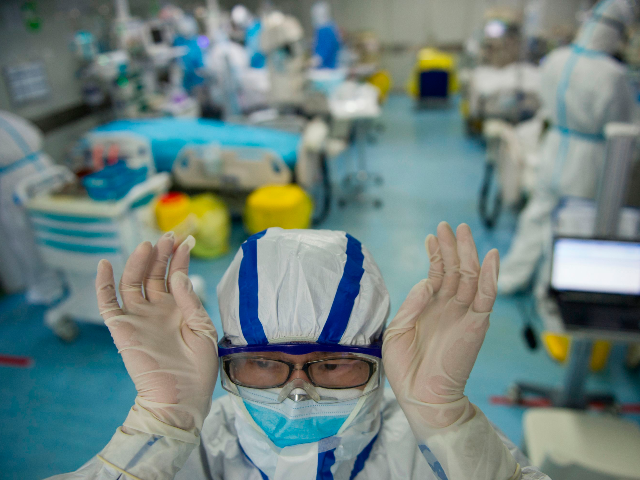The families of Chinese coronavirus victims in Wuhan, where the coronavirus pandemic originated accused the Communist Party of blocking lawsuits against the state for its poor handling of the outbreak on obscure legal grounds, Agence France Presse (AFP) reported Thursday.
Plaintiffs have filed lawsuits seeing 2 million yuan ($295,000) in redress from the governments of the city of Wuhan and its province, Hubei, alleging the government tried to hide the outbreak and mismanaged the response once they could no longer deny it.
The Communist Party claims only 3,900 people died of coronavirus infections in Wuhan, a number Wuhan locals have repeatedly questioned.
Yang Zhanqing, a U.S.-based Chinese activist coordinating with lawyers privately advising families, said the court in Wuhan has routinely rejected claims without specifying the grounds for doing so. He added that the families are not receiving written rejections as required, but instead getting only phone calls.
Zhang Hai, who lost his father to the coronavirus, identified at least five lawsuits filed with the Wuhan Intermediate Court, noting that none have advanced. He alleges his father contracted the virus while in the hospital for an unrelated condition and that officials are working to silence and discredit him, shutting down his social media presence. Other victims’ families reportedly have faced similar intimidation efforts from the government to dissuade them from filing their claims, according to AFP.
Chen Yang, a Wuhan resident whose father nearly died of the virus, told the Epoch Times in March that the government sent him to a mental hospital over a lawsuit he filed against the Chinese Communist Party (CCP) in an effort “to protect his rights.”
The CCP has faced intense international scrutiny over its handling of the coronavirus outbreak, resisting mounting pressure for an investigation into its origins. Local doctors have been at the forefront of accusations of mismanagement on the part of the regime. In March, a report surfaced of an anonymous Wuhan doctor claiming the Communist Party orchestrated the “mass release” of infected residents from quarantine to save face for dictator Xi Jinping’s impending visit. Xi actively avoided public attention for much of the outbreak in Wuhan, believed to have begun as early as November 2019.
Among the most prominent local doctors attempting to warn Wuhan of an infectious disease outbreak was Dr. Li Wenliang, an ophthalmologist who died of coronavirus in January. Shortly before his death, police arrested him for spreading “rumors” on social media, warning other doctors about the need for protective equipment when treating the virus.
The CCP initially demonized Li for allegedly spreading misinformation and panic, but has since resuscitated his reputation posthumously, branding him an early martyr in the fight against the disease.
In early April, Radio Free Asia (RFA) documented reports of screams coming from Wuhan funeral homes and health workers dumping live patients into body bags. RFA was unable to confirm that the Wuhan government was burning its coronavirus patients alive.
Internal scrutiny has not been the only source of legal trouble for China. Anticipating international blowback, the government in May drafted a “sovereign immunity” bill to insulate the state from any international legal broadsides over its handling of the pandemic and alleged efforts to suppress its own dissenters and pressure watchdog agencies.
Human rights website Bitter Winter documented the legal precedents and grounds on which Western legal offensives might succeed, noting the growing organization of such legal efforts in western countries as early as March.
Casting blame in any direction away from them, CCP officials have groundlessly accused the U.S. of releasing the virus from a research lab in Fort Detrick, Maryland, and framing China after it leaked into the general populace. No evidence exists that the virus was present in Maryland before it was present in Wuhan and the one piece of evidence Beijing claims for this assertion is a documented number of lung injuries related to e-cigarettes. Doctors do not use personal protective gear to treat individuals with e-cigarette lung injuries and no documented instances exist of health workers becoming sick after doing so; there is no evidence that lung injuries are contagious.
China doubled down on the conspiracy theory, going as far as to use state-backed lawyers to formally bring lawsuits against the U.S. Centers for Disease Control and Prevention (CDC) alleging they suppressed news of the outbreak and hid its origins in the U.S., Radio Free Asia reported.

COMMENTS
Please let us know if you're having issues with commenting.